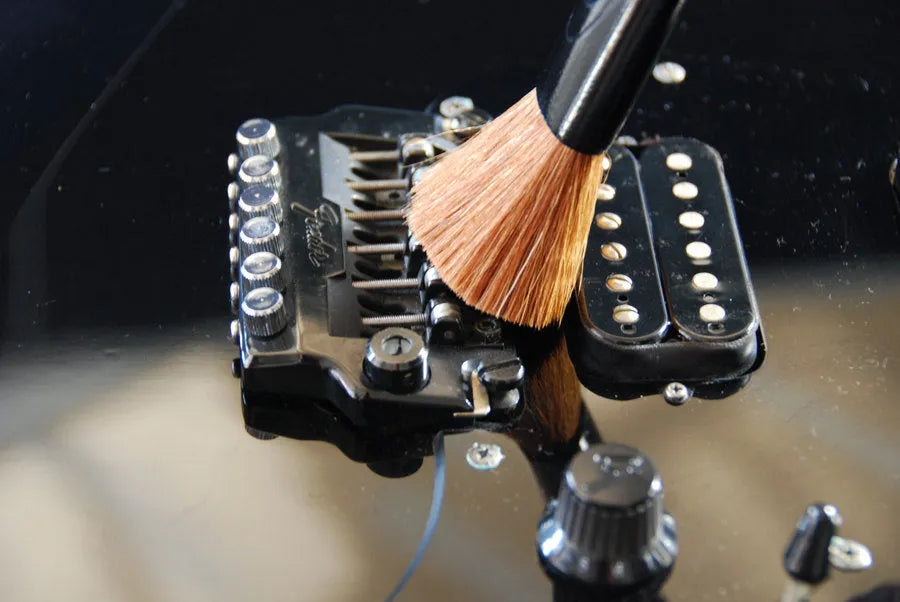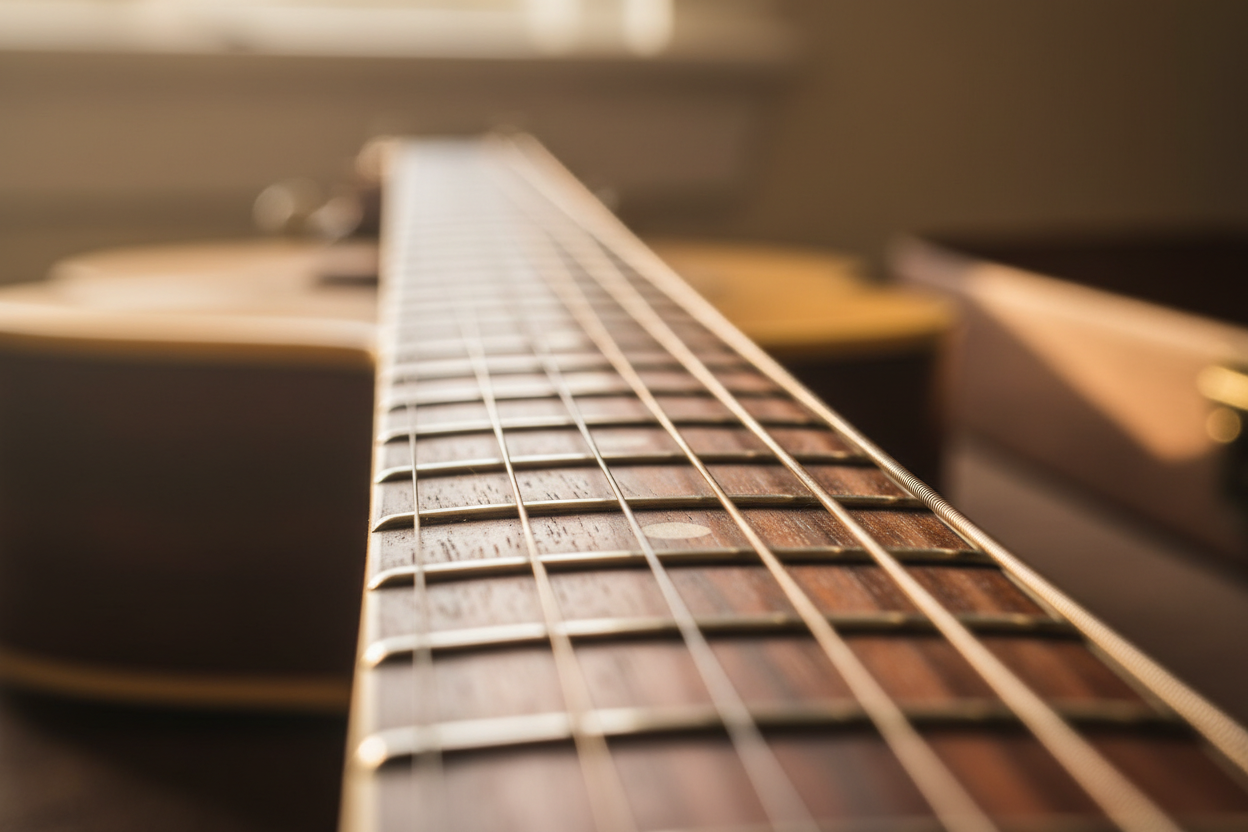1. Use a soft brush to remove dust or particles
Before you begin cleaning your guitar, use a soft brush to gently remove any dust or particles from its surface. This precautionary step helps prevent scratches caused by debris being rubbed into the finish during polishing.
2. Use a clean, soft cloth for polishing
Always use a microfiber cloth for polishing your guitar, as it is specifically designed to prevent scratches. Check your cloth before each use to ensure it is free from dirt or other debris, as any foreign particles can act as abrasives and scratch the finish of your guitar. Make a habit of inspecting the cloth every time you use it, and store it in a clean container to prevent it from picking up dirt.
3. Be gentle when polishing your guitar
Even a brand-new microfiber cloth can leave scratch marks if you press too hard when polishing your instrument. Black finishes, in particular, are more likely to reveal micro-scratches. Be gentle when cleaning your guitar and apply light, even pressure to avoid causing any damage.
4. Use the correct polish

When cleaning your guitar, use a polish specifically designed for musical instruments, not furniture polish. Guitar polish is formulated to protect and preserve your instrument's finish without causing harm.
5. Never use paper towels on your guitar
Paper towels are abrasive and can cause significant damage to your guitar's finish. Always use a soft microfiber cloth for cleaning and polishing to prevent scratches.
6. Beware of clothing and accessories that can cause scratches
Shirt buttons, rings, zippers, and belt buckles can all scratch your guitar's finish. When playing, ensure you're wearing clothing without abrasive or protruding elements that could damage your instrument. If necessary, remove any accessories or jewelry that might come into contact with your guitar.
7. Use a pickguard
If you play with a pick, consider using a pickguard to shield your guitar's finish from accidental scratches. Many guitars come with pickguards pre-installed, but you can also purchase them separately and attach them yourself.
8. Replace old or damaged straps
A worn or damaged strap can scratch your guitar's finish, especially if it has metal buckles or sharp edges. Inspect your strap regularly and replace it if it shows signs of wear or damage.
9. Keep your fingernails trimmed and be mindful of your playing technique
Long fingernails can inadvertently scratch your guitar's finish, as well as damage the fretboard and leave scratches around controls and switches. Keep your nails short and well-groomed to prevent any accidental damage. Additionally, pay attention to your playing technique and avoid applying too much pressure or using aggressive motions that could cause scratches or wear on the guitar's surface.
10. Invest in a quality guitar stand or wall mount
Leaning your guitar against furniture or laying it on the floor increases the risk of scratches and dents. Invest in a quality guitar stand or wall mount to provide a safe, secure place for your instrument when it's not in use. Ensure the stand or mount has padding to protect your guitar's finish.
11. Use guitar wax to protect your instrument's gloss or semi-gloss finish

Applying a top-notch guitar wax, like a professional-grade white Brazilian carnauba wax, offers an acoustically clear and long-lasting barrier with a brilliant gloss. This safeguard defends your guitar's finish from moisture, sweat-induced salt, and airborne particles. It also smooths out minor blemishes. Opt for a non-abrasive wax to guarantee your guitar remains safe from any damage.
12. Use a guitar case or gig bag
Transport your guitar in a sturdy case or gig bag to protect it from scratches, dings, and other potential damage. Opt for a case with a plush interior lining and ample padding to shield your instrument from impacts.
13. Clean your hands before playing
Oil, dirt, and sweat from your hands can transfer to your guitar's finish, making it more susceptible to scratches. Wash your hands before playing to minimize the risk of damage.
14. What to do if your guitar does get scratched

If your guitar does get scratched, don't panic – there are steps you can take to minimize the damage and restore its appearance. First, assess the severity of the scratch to determine if it's a surface-level blemish or a deeper gouge. For light scratches, using a guitar-specific polish and a gentle buffing technique can help reduce their visibility. Applying a high-quality, non-abrasive guitar wax can also aid in smoothing out minor imperfections and protecting the finish against further damage. If the scratch is deep or extensive, it's best to consult a professionalluthier for advice and repair, as they have the expertise to restore your instrument without causing additional harm.
Conclusion
Taking care of your guitar's finish not only keeps it looking beautiful but also helps maintain its value. By following these simple tips, you can avoid scratching your guitar and ensure it remains in excellent condition for years to come. Remember to handle your instrument with care, use the right cleaning materials and techniques, and store it properly to protect its delicate finish. Keep your playing environment and clothing in mind, and consider using a protective wax to further shield your guitar from potential damage. As a final piece of advice, make sure to store your guitar away from direct sunlight, as prolonged exposure can damage the finish over time. By implementing these precautions, you'll be able to preserve your guitar's pristine appearance and enjoy its beautiful sound for many years.





